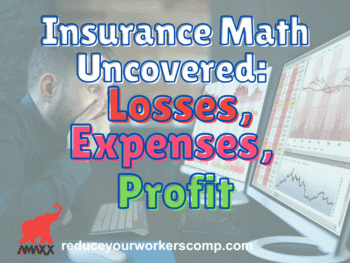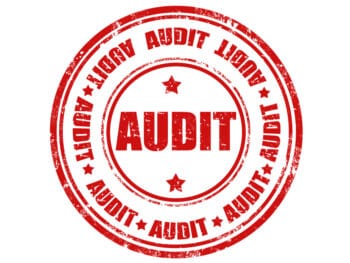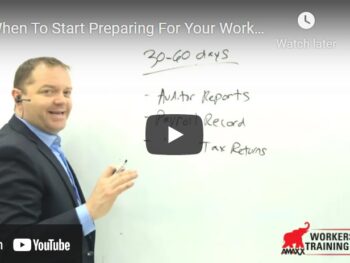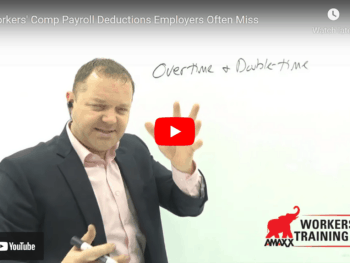How Would You Decide: Employee Injured During “Commute” While on Temporary Out-of-State Duty Is Not Barred From Recovery by “Going and Coming Rule”
Here’s what Tom Robinson, J.D., writer for Lexis Nexis Workers Comp Law Center reports.
Here’s What Happened
West and three other employees at an Ohio Lukjan plant were sent to North Carolina on a one-week temporary assignment, to assist with the training of the NC Lukjan employees and to complete production runs at the NC Lukjan plant. Prior to the trip, West had been on several similar week-long trips to assist at the NC plant. West and the others traveled to NC in a rental car provided by Lukjan.
They were paid for travel time, were required to stay in housing paid for and chosen by Lukjan, and generally traveled to and from the NC plant each day together in the rental vehicle. Lukjan paid for all meals during their absence from Ohio.
West sustained injuries in an automobile accident as the group was returning to the housing accommodations at the end of a workday. West sought workers’ compensation benefits and was initially granted participation in the Workers’ Compensation Fund but later the District Hearing Officer denied the claim and the Staff Hearing Officer subsequently determined that West did not sustain a compensable injury as defined by the state Workers’ Compensation Act.
West appealed to the Court of Common Pleas and that trial court eventually granted West’s motion for summary judgment, finding that West was in the “zone of employment” when he was injured. The employer appealed, contending West’s claim was barred by the “going and coming rule.”
Here’s What The Court Decided
In West v. Lukjan Metals Prods., Inc., 2009 Ohio 5761, 2009 Ohio App. LEXIS 4855 (Oct. 30, 2009), the Court of Appeals of Ohio (11th App. Dist.) affirmed the trial court’s determination. Acknowledging that under the general rule, an employee with a fixed place of employment, who is injured while traveling to or from his or her place of employment, is not entitled to participate in the Workers’ Compensation Fund because the requisite causal connection between the injury and the employment does not exist, the court also observed that there were several exceptions to the rule.
The court observed that one such exception was where the injury occurs within the “zone of employment” and that a critical inquiry of the “zone of employment” analysis is whether the employer had control over the area where the accident occurred. Repeating the lower court’s findings, the appellate court observed that West’s accident occurred in a car, rented by Lukjan and driven by a Lukjan employee, traveling from the Lukjan plant to the temporary residence where West was required to stay, a place chosen and paid for by Lukjan. The court observed that whether West was being paid at the time of the injury was not controlling. (workersxzcompxzkit)
Here Lukjan had control over the scene of the accident. Furthermore, it received an economic benefit from the cost savings associated with requiring the workers to travel together in one vehicle. Additionally, the accident was in proximity to the Lukjan North Carolina plant; the vehicle was en route from the plant to West’s lodging, which was located a reasonable distance from the plant. Considering the totality of the evidence, the “zone of employment” test was met. There was no genuine issue of material fact; the injury was compensable.
See generally Larson’s Workers’ Compensation Law, §§ 13.01, 14.02, 15.01, 25.01.
Tom Robinson, J.D. is the primary upkeep writer for Larson’s Workers’ Compensation Law (LexisNexis) and Larson’s Workers’ Compensation, Desk Edition (LexisNexis). He is a contributing writer for California Compensation Cases (LexisNexis) and Benefits Review Board – Longshore Reporter(LexisNexis), and is a contributing author to New York Workers’ Compensation Handbook(LexisNexis). Robinson is an authority in the area of workers’ compensation and we are happy to have him as a Guest Contributor to Workers’ Comp Kit Blog. Tom can be reached at: compwriter@gmail.com.
http://law.lexisnexis.com/practiceareas/Workers-Compensation
We accept articles about WC cost containment. Contact us at: Info@WorkersCompKit.com.
Reduce Your Workers Comp: www.ReduceYourWorkersComp.com/
Workers Comp Kit: www:workerscompkit.com/
FREE WC IQ Test: http://www.workerscompkit.com/intro/
WC Books: http://www.reduceyourworkerscomp.com/workers-comp-books-manuals.php
TD Calculator: www.ReduceYourWorkersComp.com/transitional-duty-cost-calculator.php
More FREE TOOLS:
WC Calculator: www.reduceyourworkerscomp.com/calculator.php
WC 101: www.ReduceYourWorkersComp.com/workers_comp.php
Follow Us On Twitter: www.twitter.com/WorkersCompKit
View the Entire Blog: https://blog.reduceyourworkerscomp.com/
http://reduceyourworkerscomp.com/Return-to-Work-Programs-Unionized-Companies.php
Do not use this information without independent verification. All state laws vary. You should consult with your insurance broker about workers’ comp issues.
©2009 Amaxx Risk Solutions, Inc. All rights reserved under International Copyright Law. If you would like permission to reprint this material, contact Info@WorkersCompKit.com
�

























